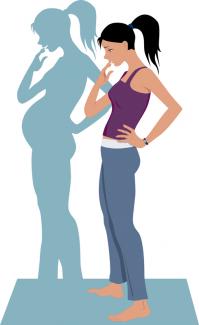
The number of couples facing infertility is rising. Some risk factors are modifiable and preventable. Obstetrician and gynaecologist Dr Chandan Dubey shares 5 tips on conceiving naturally. This focusses on what women need to be aware of.
A couple who cannot conceive after one year of regular unprotected sex may have infertility. About 1 in 7 couples have this problem and need treatment. Many trends in the rapidly changing lifestyles of women and men may increase this problem in the future.
Here are 5 pointers to up your chance of conceiving naturally.
The biological clock is ticking…
Women need to remember that for them, age is very important when planning a baby. Not so much for men. The number and quality of eggs in the ovaries decreases drastically after 35 years. Chances of a spontaneous conception start decreasing and are very low at 40 years. Professional and career-driven women who postpone marriage or delay starting a family need to keep this in mind.
Use condoms to protect yourself against sexually transmitted genital tract infections
All women who are sexually active are at risk of sexually transmitted genital tract infections that may damage the fallopian tubes causing subfertility. Even treatment may not reverse the damage once it has occurred. Subfertility due to tubal block needs to be treated by assisted reproduction techniques like in vitro fertilisation. So, even if the woman is on some other contraceptive, like oral pills, it is prudent to use condoms to prevent infections.
Maintain healthy weight
Obese or overweight women may have difficulty conceiving as obesity may negatively affect the ovulation and menstrual cycle. Ovulation may be impacted adversely both by extremely low or excessive weight. Women planning a pregnancy would have a higher chance of conceiving if they had optimal weight.
Stay away from alcohol and cigarettes
Alcohol and smoking affect reproductive potential adversely in both men and women and need to be checked by couples planning to have a baby.
Avoid stress
Stress is known to cause problems with ovulation and menstrual cycles. If a couple is under any kind of stress, it may affect the frequency with which they have sex, which would have a negative impact on chances of conception. A couple trying to have a baby should avoid stress of any kind.






